A Powerhouse Panel of Women Discusses Ways to Shrink South Florida’s Digital Divide
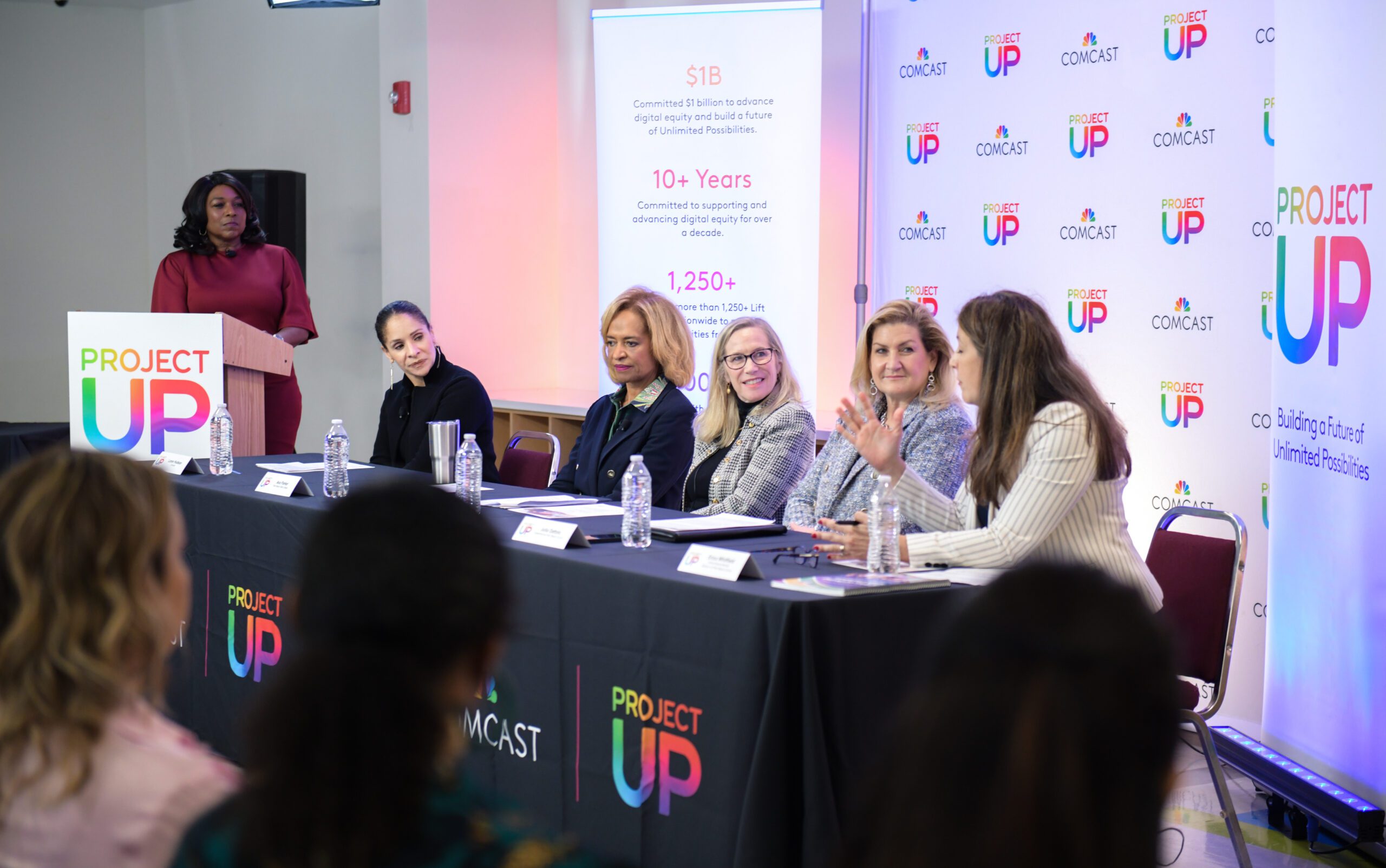
Florida’s rainy weather couldn’t stop an important and powerful discussion from taking place in a historic West Palm Beach neighborhood. A dynamic panel, including some of South Florida’s most respected female leaders, recently gathered inside the U.B. Kinsey Educational & Community Center to talk about an issue at the center of most people’s lives – connectivity.
A 2023 study by the National Skills Coalition revealed what many of us knew to be true. More and more jobs – 92% of all jobs – require digital skills yet many workers, especially those from underserved communities, lack those skills. In addition, jobs that require even one digital skill can earn an average of 23% more than jobs requiring no digital skills – an increase of $8,000 in annual income.
As the storm clouds gathered outside, a well-known and trusted local journalist led the five women through a candid conversation about ways to improve digital access, adoption and opportunity across Palm Beach County. WPTV’s Tania Rogers asked the leaders – five distinguished business, education, healthcare and non-profit champions – about the growing need and what more can be done.
Members of the panel included:
- Loren Hudson, Senior Vice President & Chief Diversity Officer, Comcast Cable
- Ava L. Parker, J.D., President, Palm Beach State College
- Darcy J. Davis, Chief Executive Officer, Health Care District of Palm Beach County
- Julia Dattolo, President & Chief Executive Officer, CareerSource Palm Beach County
- Erica Whitfield, School Board Member District 4, School District of Palm Beach County
Ava L. Parker is president of Palm Beach State College. She said for students to be successful they need access to digital skills and tech devices.
“We tend to assume that everyone around us has what we have, but that isn’t true. Some people may be able to find Internet access but lack the device they need. Some people have a device, but don’t have access,” said Parker. “We want to give our students a strong background in tech, no matter their career path. This will keep them standing when others lose their balance.”
Loren Hudson, SVP & CDO for Comcast Cable, joined the panel to learn ways the company can better support nonprofit partners through Project UP. Hudson said she’s proud of the work Comcast is already doing to help shrink the digital divide in South Florida.
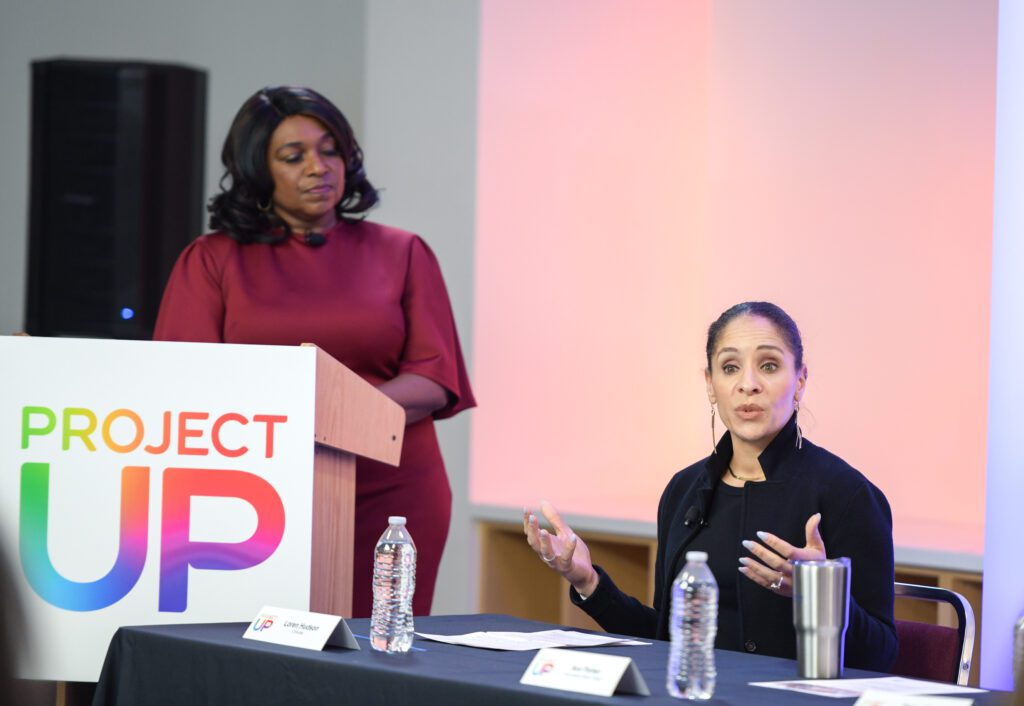
“At Comcast, we are committed to creating a future of unlimited possibilities,” said Hudson. “Together, we are empowering people and communities with the skills, resources and opportunities they need to participate and excel in an increasingly digital world. I look forward to hearing from my fellow panelists so we can make sure we are continuing to partner to create the best possible situations in our communities.”
Darcy J. Davis is the Chief Executive Officer of the Health Care District of Palm Beach County, which provides an array of health care services such as the trauma system, school health, health coverage, hospital, skilled nursing care and primary care clinics. She spoke about what connectivity means in the healthcare space and how those things are critical for people’s well-being.
“Telehealth is huge. It can be very difficult for patients who can’t travel to seek medical care from a specialist, and so they count on telehealth for their care,” said Davis. “And it even goes beyond that. Our industry is moving to electronic records, meaning patient prescriptions, scans and tests become instantly available to any of their doctors. Ultimately, this leads to better patient outcomes.”
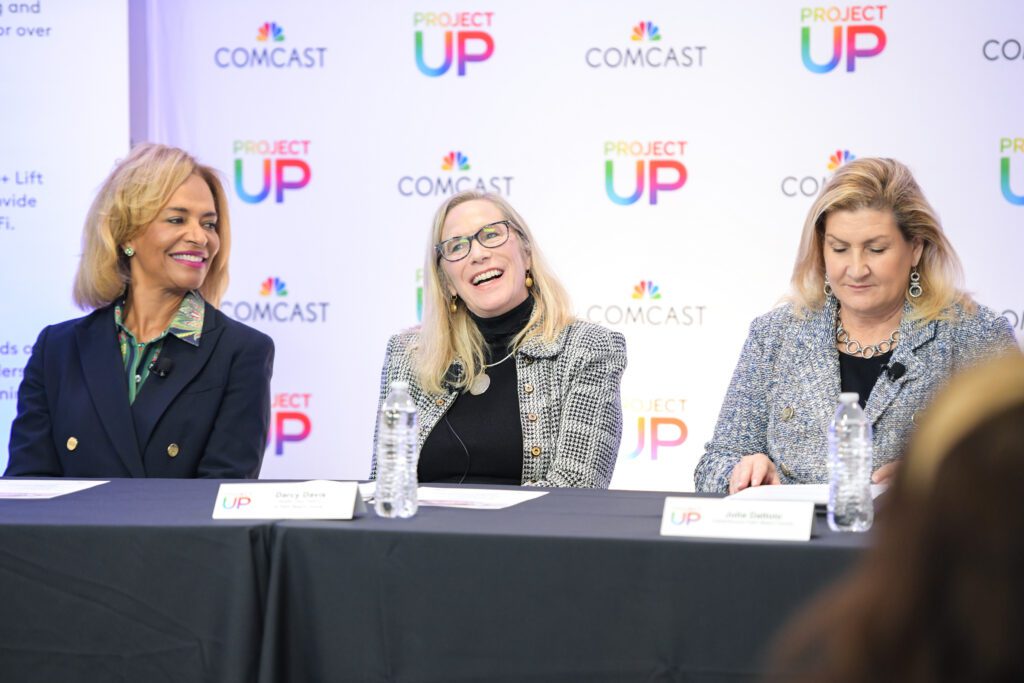
Julia Dattolo is President and CEO of CareerSource Palm Beach County, an organization that represents opportunity by helping job seekers find new jobs through career assessments, training and employment assistance. She said she’s seen both the challenges and benefits of tech in the job market.
“You can’t apply, interview or fill out necessary forms for a new job without getting online. But, the impact of technology is two sided. As much as it may be a barrier, it has also created more jobs,” said Dattolo. “Some of the main traits that companies I work with are looking for are soft skills, digital literacy and the ability to work on a team. We need connectivity to get everyone there.”
Erica Whitfield serves on the school board of the School District of Palm Beach County, where she has made it one of her missions to expand Internet access for students. She explained the COVID-19 pandemic made the issue impossible to ignore.
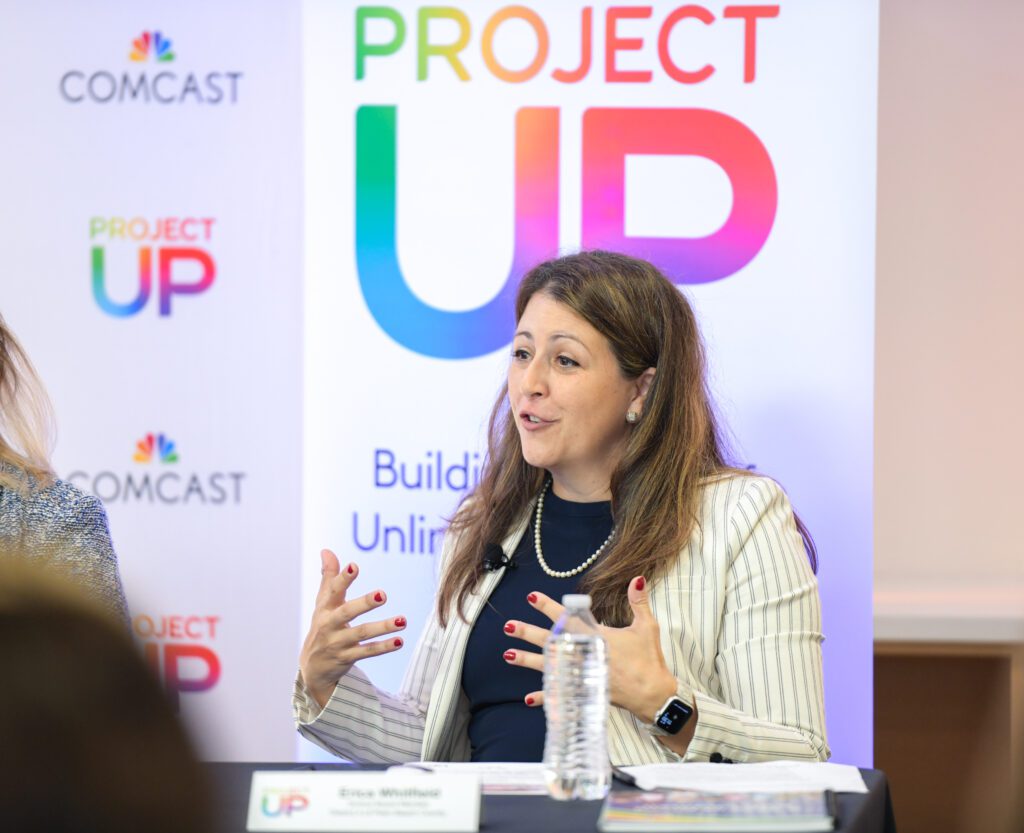
“During the pandemic, it became very clear that not all students had the same access to the internet. We were able to get everyone devices to do their schoolwork on, but then we really had to focus on getting internet to everyone in the community,” said Whitfield. “In order to have a successful start at school, children need access to tech in Pre-K. It has to start young.”
Ultimately, the panelists agreed digital literacy is key for a community’s continued success. From those entering kindergarten all the way to older adults, digital skills are needed now more than ever. To do that, the Internet must remain accessible and affordable.
As an astute journalist, Rogers spotted the synergy. “All of you come from different walks of life,” said Rogers. “But everything you’re saying overlaps.”
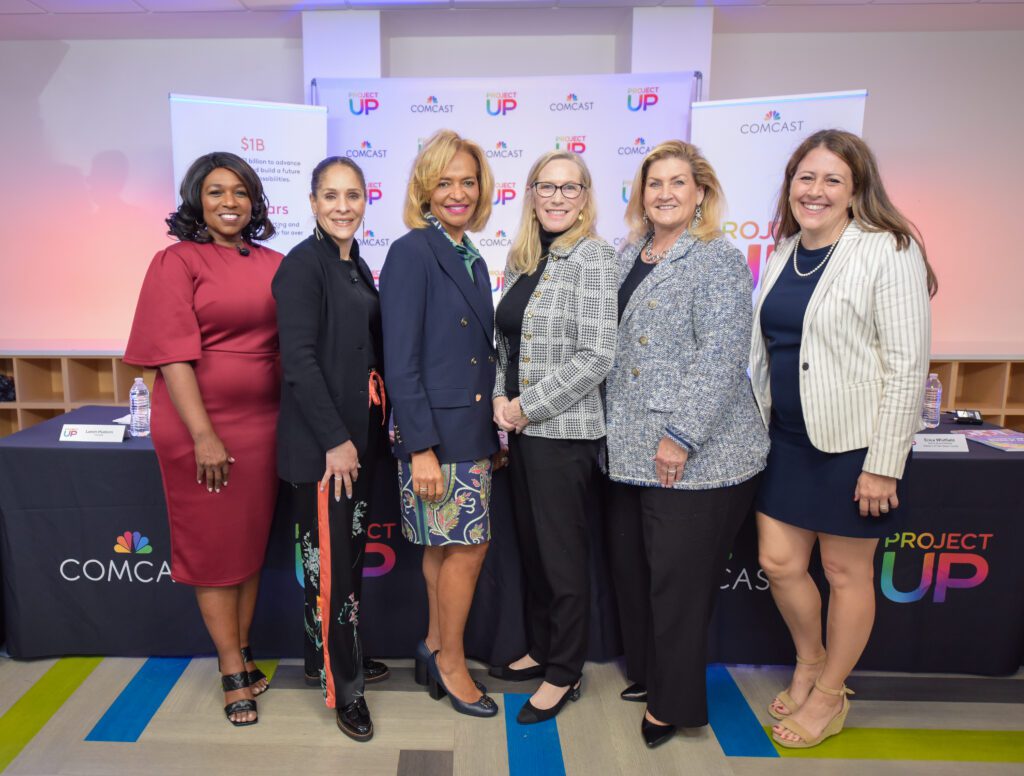
Some of the ways Comcast is working to help bridge the digital access gap include Lift Zones and Digital Navigators. Working with our network of thousands of nonprofit partners and city leaders nationwide, Lift Zones provide a robust WiFi solution in supportive neighborhood locations like nonprofits, community centers, gyms, and parks and recreation facilities. Digital Navigators are trusted individuals affiliated with local nonprofits, educational institutions, or governmental organizations who are trained to help people learn how to get online, use devices, and acquire digital skills. They assist those who don’t know where to start and can help open the door to opportunity and economic mobility.
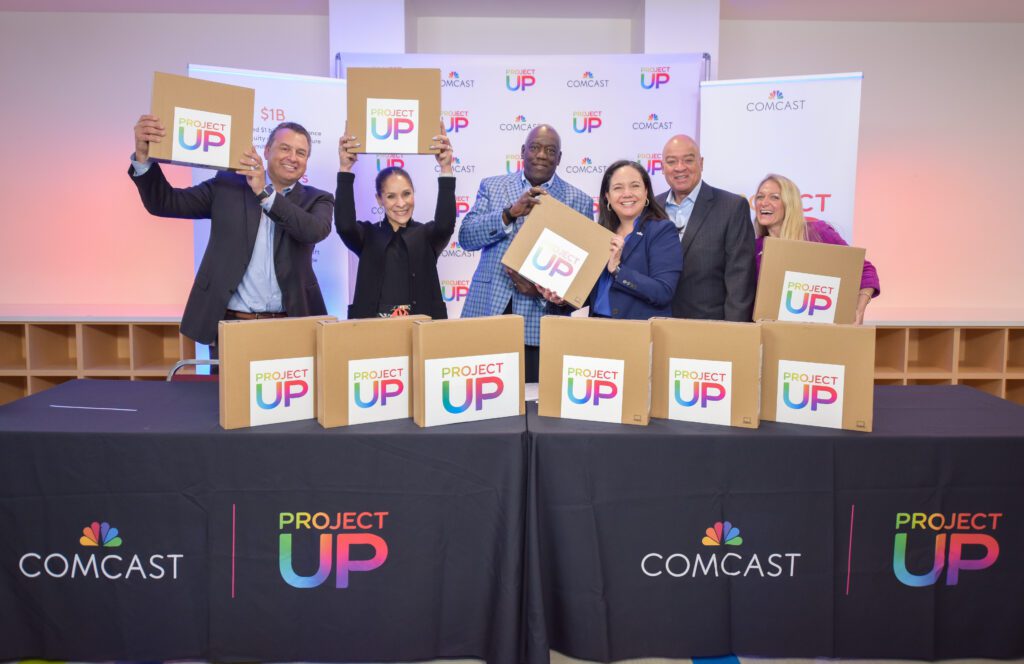
To help support connectivity and access at U.B. Kinsey, Comcast donated 10 laptops to the community center to mark the event. The U.B. Kinsey Educational & Community Center was established to respond to the needs of the community by combining under one roof a comprehensive source of programs and services intended to serve the underserved. The Center contains seven classrooms, a conference room, a multi-purpose room to host meetings and community events, and a fully equipped kitchen. Their mission is to strengthen lives and secure futures. Their vision is to bring hope for a better tomorrow by transforming the lives of those they serve as they reach new heights.